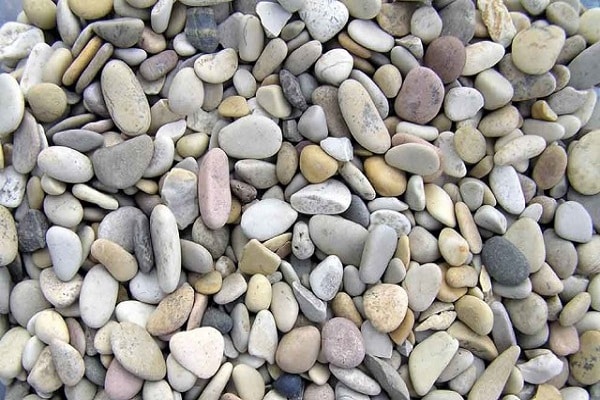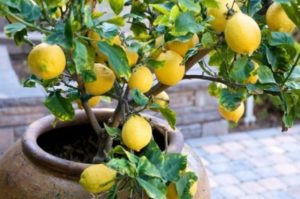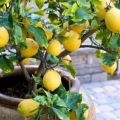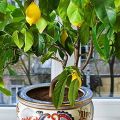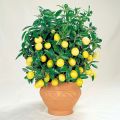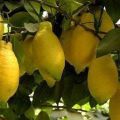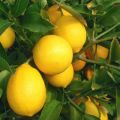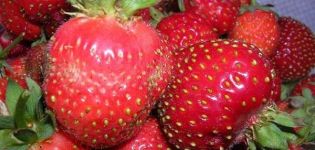How to prepare lemon soil at home and rating of the best soil producers
Do not surprise anyone with a beautiful tree with fragrant leaves growing on the windowsill. With proper care, lemon yields a good harvest several times a year. But correct watering and fertilization applied on time will not bring results if the soil is incorrectly selected for the lemon. It is important to know and understand all the nuances of soil selection. Only in this case will the plant develop correctly and give the long-awaited result.
Minerals and Elements Lemon Needs
A lot does not mean good. This rule is taken into account when growing a houseplant. For proper development, citrus fruits need:
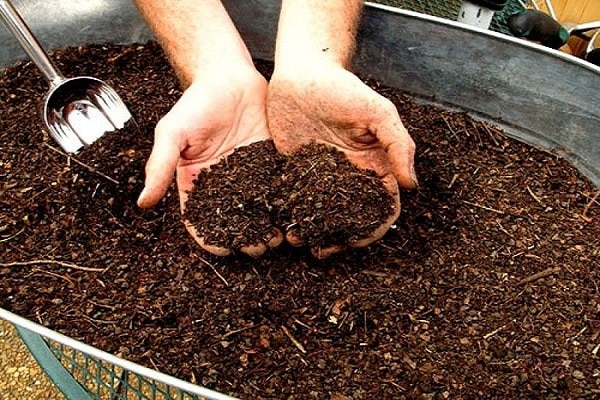
- potassium;
- phosphorus;
- magnesium;
- calcium.
All the necessary components are contained in a properly selected soil.
What should be included
Both in products for humans and for plants, the composition is important. Lemon can bear fruit only if the ideal conditions for care and planting are observed, the most important of which is the earth. To do this, you need to figure out which one is needed for the lemon. It is recommended to mix the following types of soil.
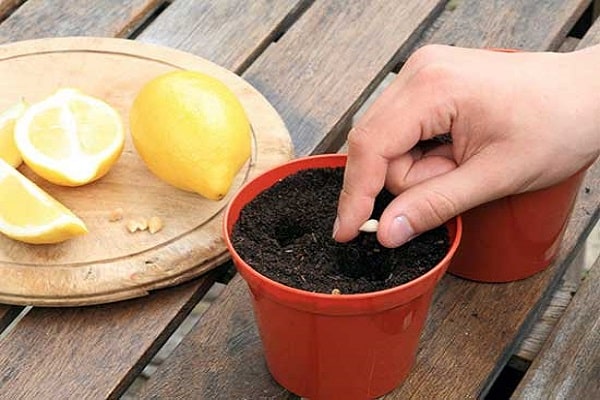
Garden land
Suitable from a simple garden bed. They are cleaned before use, preferably sieved and calcined in an oven. It makes up 30% of the whole mixture.
Leaf land
Helps the plant become strong, bear fruit more quickly, promotes vigorous growth. Best collected under a linden tree. Take only the first five centimeters. The roots and litter are removed. Add 20%.
Sod land
Nettle or clover harvested at the site of growth is ideal. The herbs provide the optimum acidity that lemon needs. The land is cleaned of debris and roots. Add 20%.
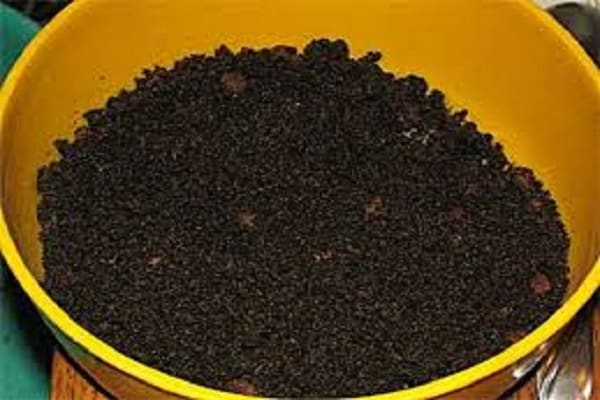
Sand
The choice is stopped for coarse grains. Ideal - river or spring. Makes 10% of the mixture.
Peat land
It perfectly absorbs excess moisture. Endowed with good air tightness. Thanks to this, the root system develops correctly, does not rot and is protected from drought. It accounts for 10% of the total volume.
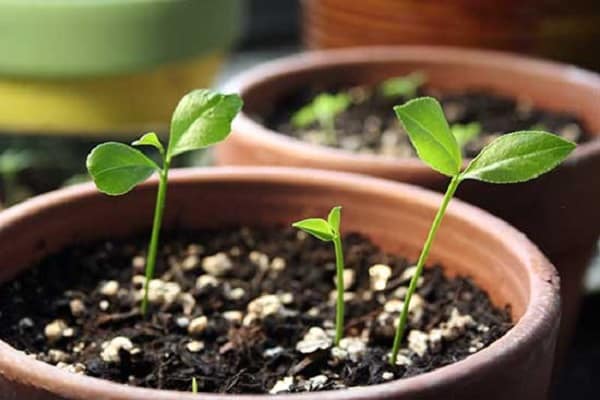
Compost
The raw material is fallen leaves, grass, straw, and leftover food. The decomposition of which results in a nutrient-rich component. Add 10%.
The compost should be fully ripe, dark, smooth and easily crumbly. Unfinished product will destroy the plant.
It is also recommended to add slurry humus. Optimal use from horses.You can take it on any farm or buy it by ad.
Recommended pH for citrus fruits
The acidity of the earth plays an important role in the formation of the plant. Citrus prefers:
- neutral soil, the acidity level of which is 6.5-7 pH;
- also likes less acidic (pH 6).
Houses are checked with a special device, litmus paper is also suitable. These tools are purchased at any store that sells garden tools.
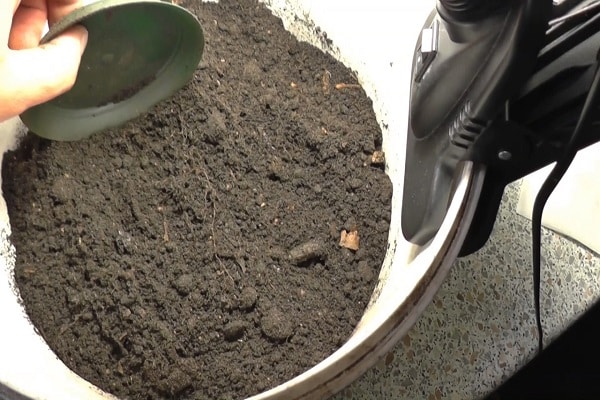
What to look for when buying
When buying, choose soil for indoor plants containing peat and neutral acidity. An ideal option is a special soil that is intended for lemons. It contains all the components necessary for the plant in the right proportions.
They also pay attention to:
- Expiration date, production date. The fresh product still contains useful substances and microflora is less developed.
- Mineral components. There should be a ratio: one part nitrogen, one and a half parts phosphorus and two parts potassium.
- On soil particles. Clotted lumps indicate poor quality.
The problem of ready-made mixtures in storage. They are sold tightly packed. If the substrate is wet, then the process of decomposition of plant components will continue, as a good environment for bacteria to live is created. In such soil, the lemon will feel bad.
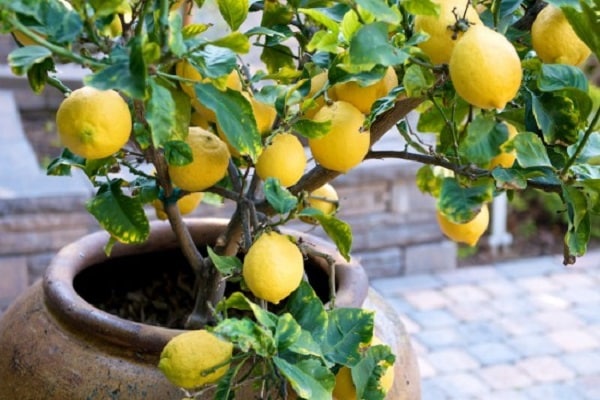
Signs of quality soil
Even the purchased special primer is recommended to be checked after purchase. For this:
- Moisten the lump of the substrate with distilled water. Liquid filtered through a filter is also suitable.
- A litmus test is applied to a wet coma. The soil is suitable for use if it turns green or yellow. This means that the pH level is normal.
- Cannot be planted in alkaline soil. In this case, the piece of paper will turn blue. Strongly acidic soil is harmful, which appears in red.
- Cannot be planted in soil containing petroleum products. To do this, a lump of earth is thrown into water and mixed. If a film or rainbow spots appear on the surface, the substrate is of poor quality.
Any soil can contain larvae and fungal spores invisible to the eye. Therefore, be sure to hold it for a couple of hours in the oven.
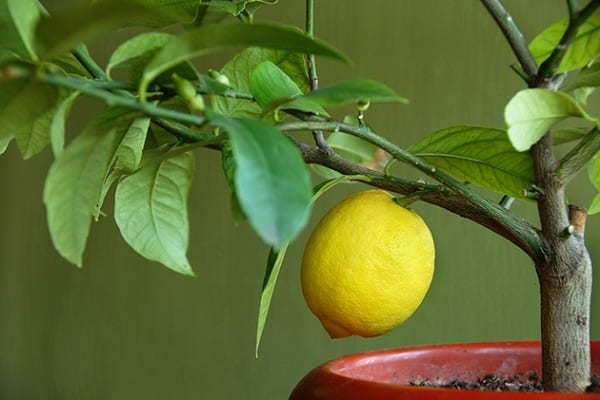
Rating of store mixes
There are various types of mixtures, the composition of which has a balanced structure. Their basis is peat. The product is completely ready for planting, and there is no need for additives.
Acquire:
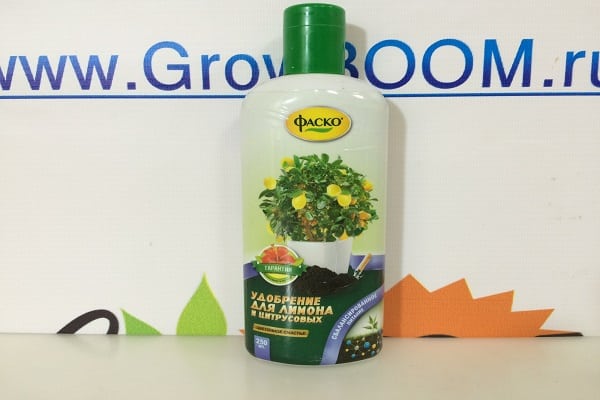
- Fasco "Lemon". Contains a balanced amount of nutrients.
- Terra Vita "Universal". Balanced soil containing all the necessary components. Before use, they are calcined in an oven to avoid the appearance of a large number of worms.
- Aurica Gardens "Gardenia". Ideal chemical composition. Included components: sand, earth, broken brick. Plus, there is no need to purchase additional drainage.
- Peat soil "For citrus fruits". Producer "Seliger-Holding". Contains a large-pore baking powder to preserve the structure.
- Dream Botanist "Lemon". The ideal ratio of trace elements. Contains the required level of acidity.
- "Garden of Miracles". Contains essential minerals. You will have to add river sand before use. It is purchased separately or harvested independently. It is washed and dried before adding.
The correct land will provide a high decorative effect to the plant, accelerate development, and help it grow faster.
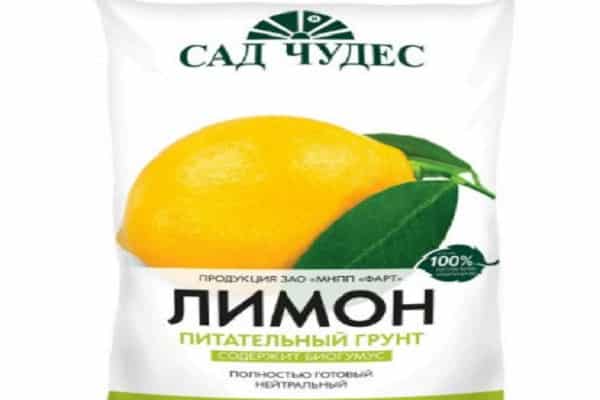
How to prepare lemon soil yourself
The self-prepared mixture is many times better in quality. To do this, mix:
- washed and dried sand;
- forest land, not suitable from under coniferous trees;
- turf, take only the first 5 centimeters;
- humus, it must be completely ready;
- also add drainage.
The homemade mixture is sieved before use.
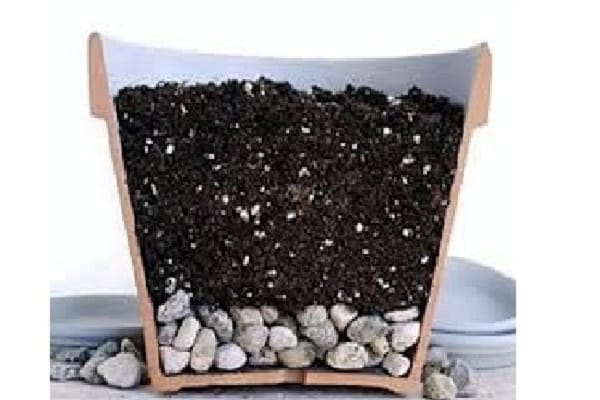
It is enough for young plants to cook from:
- sod soil;
- leaf humus;
- sand will be needed in small quantities;
- peat is also used in small quantities.
Prepare and mix the mixture at home in advance. Store in a cool place. A basement is ideal. Take out as needed.
It is useful to add dolomite to the composition. It is sold as flour. This helps to reduce acidity in the peat substrate.
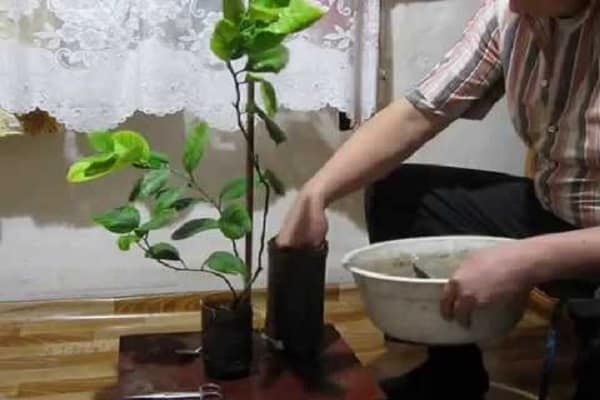
Choosing drainage for a plant
Before planting, be sure to purchase drainage. It will protect the root system from excessive waterlogging. Suitable for these purposes:
- crushed stone;
- fragments of clay dishes;
- expanded clay, created artificially, obtained by firing clay rock, sold in the form of balls, laid out on the bottom of the container;
- broken red brick;
- river pebbles.
The necessary finished material can be purchased at any flower shop along with a special primer.
